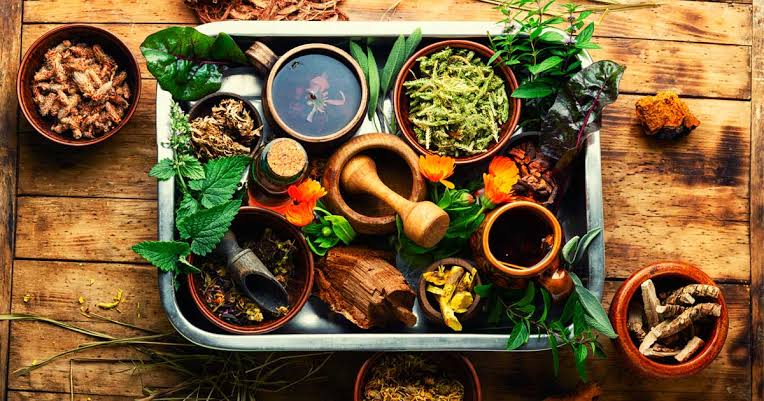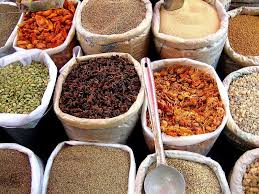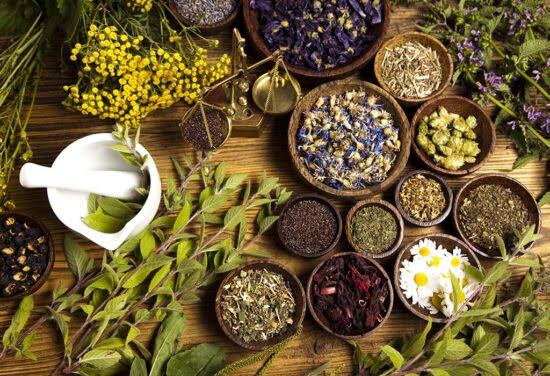High blood pressure, sometimes known as hypertension, is a condition where the force of blood against the walls of your arteries is consistently too high. It can be harmful and increase the risk of serious health problems, including heart disease and stroke. Many people with high blood pressure turn to herbs as a natural way to help manage their condition.
Here are some herbs that are believed to have potential benefits for high blood pressure:
1. Garlic: Garlic is a common herb that has been used for centuries for its potential health benefits. It may help lower blood pressure by relaxing blood vessels and improving blood flow. You can include more garlic in your diet or take garlic supplements, but be sure to consult with a healthcare professional first.
2. Hawthorn: Hawthorn is a herb that has been traditionally used to support heart health. It may help dilate blood vessels, reduce resistance in arteries, and lower blood pressure. Hawthorn can be consumed as a tea or in supplement form.
3. Olive Leaf: Olive leaf extract contains compounds that may have a positive impact on blood pressure. It is believed to relax blood vessels and reduce inflammation, potentially contributing to lower blood pressure levels.
4. Cinnamon: Cinnamon is a delicious spice that may also have blood pressure-lowering properties. Some studies suggest that cinnamon can help improve blood vessel function and reduce blood pressure. You can easily incorporate cinnamon into your diet by adding it to foods and beverages.
5. Ginger: Ginger is another spice with potential benefits for high blood pressure. It may help relax blood vessels and improve blood circulation. You can enjoy ginger in various forms, such as fresh ginger tea or adding it to your meals.
6. Turmeric: Curcumin, the active compound in turmeric, has anti-inflammatory properties and may help relax blood vessels. While turmeric is not a direct remedy for high blood pressure, its overall health benefits may contribute to better heart health.
7. Basil: Basil is a fragrant herb that contains compounds like eugenol, which may help lower blood pressure by relaxing blood vessels. It’s easy to incorporate basil into your diet by using it as a seasoning or making basil tea.
8. Celery Seed: Celery seed is another herb that has been studied for its potential to lower blood pressure. It may work by reducing muscle contractions in blood vessels, leading to lower blood pressure levels.
9. Lavender: Lavender is known for its calming and soothing effects, and it may also help lower blood pressure. Aromatherapy with lavender essential oil or drinking lavender tea can be relaxing and may contribute to lower stress-related high blood pressure.
It is very very essential to remember that while these herbs may offer potential benefits, they are not a replacement for prescribed medications or a healthy lifestyle. If you have high blood pressure or are considering using herbs as part of your management plan, consult with a healthcare professional. They can provide guidance on the right approach to managing your blood pressure and whether herbal remedies are suitable for you.
Additionally, lifestyle changes, such as maintaining a balanced diet, regular exercise, and stress management, are crucial for overall heart health.
Read Also: African Serval Cat Description and Complete Care Guide
Herbs to Lower Blood Pressure

If you are looking for natural ways to lower your blood pressure, several herbs are believed to have the potential to help. While herbs should not replace prescribed medications or lifestyle changes, they can complement a healthy routine. Here are some herbs that are commonly considered for their blood pressure-lowering properties:
1. Hawthorn (Crataegus laevigata): Hawthorn has a long history of use in traditional medicine for heart health. It is believed to dilate blood vessels, improve blood flow, and reduce blood pressure. You can consume hawthorn as a tea, in capsule form, or as a tincture.
2. Garlic (Allium sativum): Garlic is known for its potential to reduce high blood pressure. It contains allicin, a compound that may help relax blood vessels and lower blood pressure levels. Incorporating fresh garlic into your diet or taking garlic supplements may be beneficial.
3. Olive Leaf (Olea europaea): Olive leaf extract is thought to have antioxidant and anti-inflammatory properties that can help lower blood pressure. It may improve blood vessel function and reduce hypertension-related stress on the heart.
4. Cinnamon (Cinnamomum verum): Cinnamon is a flavorful spice that may aid in lowering blood pressure. Some studies suggest that cinnamon can improve blood vessel dilation and reduce blood pressure levels. Sprinkling cinnamon on your food or adding it to beverages can be an easy way to incorporate it into your diet.
5. Ginger (Zingiber officinale): Ginger has anti-inflammatory properties and is considered a natural remedy for hypertension. It may help relax blood vessels and improve blood circulation. Fresh ginger can be used to make tea or added to various dishes.
6. Turmeric (Curcuma longa): Curcumin, the active compound in turmeric, has anti-inflammatory and antioxidant properties that may benefit heart health. While not a direct blood pressure reducer, turmeric’s overall health benefits could contribute to lower blood pressure over time.
7. Basil (Ocimum basilicum): Basil contains compounds like eugenol, which may help relax blood vessels and reduce blood pressure. You can use fresh basil as a seasoning or make basil tea to enjoy its potential benefits.
8. Celery Seed (Apium graveolens): Celery seed is another herb that is believed to have blood pressure-lowering properties. It may work by reducing muscle contractions in blood vessels, leading to lower blood pressure levels.
9. Lavender (Lavandula angustifolia): Lavender is known for its calming effects and may help reduce stress-related high blood pressure. Aromatherapy with lavender essential oil or drinking lavender tea can be relaxing and supportive of overall heart health.
It is very important to consult with a healthcare professional before using herbs to manage high blood pressure, especially if you are already taking medications or have underlying health conditions. They can provide guidance on the appropriate herbs and dosages for your specific situation. Additionally, a holistic approach that includes lifestyle changes like a balanced diet, regular exercise, and stress management is crucial for effectively managing high blood pressure.
Read Also: Black Footed Cat Description and Complete Care Guide
Bulk Herbs

Bulk herbs are herbs that you can buy in larger quantities, often by weight, rather than in small pre-packaged containers. These herbs come in their natural, dried form and are widely used for various purposes.
Bulk herbs are simply herbs that are sold in larger quantities, typically without fancy packaging. Instead of buying a small jar or packet of herbs, you can purchase them by weight, which means you get more for your money.
There are several good reasons to consider bulk herbs:
1. Cost-Effective: Buying herbs in bulk is often more budget-friendly than purchasing small quantities. You pay for the herbs themselves, not the packaging.
2. Freshness: Bulk herbs are often fresher because they haven’t been sitting on store shelves for as long. You can also control the amount you buy, reducing the chances of herbs going stale.
3. Customization: When you buy in bulk, you can get the exact amount you need. Whether it’s a pinch or a pound, it’s up to you.
4. Reduced Packaging: Choosing bulk herbs is environmentally friendly because it reduces the need for excess packaging. You can use your reusable containers.
Ways to Use Bulk Herbs
Bulk herbs have a wide range of uses, including:
1. Cooking: Spices and culinary herbs like basil, oregano, and cinnamon are commonly used in cooking. Buying them in bulk can save you money and ensure you have a fresh supply.
2. Teas: Many herbs, such as chamomile, peppermint, and lavender, are popular choices for making herbal teas. Buying in bulk ensures you have a steady supply for your tea infusions.
3. Herbal Remedies: For those interested in natural remedies, bulk herbs are essential. They can be used to create herbal tinctures, salves, and remedies for various health purposes.
4. Aromatherapy: Some herbs, like dried rose petals and lavender buds, are used in aromatherapy to create soothing scents in potpourri or sachets.
Where to Find Bulk Herbs
You can often find bulk herbs in:
1. Health Food Stores: Many health food stores have a bulk herb section where you can scoop out the quantity you need.
2. Herb Shops: Specialty herb shops may offer a wide variety of bulk herbs, including rare and exotic ones.
3. Online Retailers: There are numerous online retailers that specialize in selling bulk herbs. This option provides convenience and a wide selection.
Storing Bulk Herbs
Proper storage is crucial to maintain the quality and freshness of bulk herbs. Here’s how to do it:
1. Containers: Use airtight glass or plastic containers to store your bulk herbs. Mason jars are a popular choice.
2. Cool, Dark Place: Store your herbs in a cool, dark place away from direct sunlight and moisture.
3. Labeling: Label your containers with the herb’s name and date of purchase to keep track of freshness.
4. Use Quickly: While bulk herbs stay fresh longer, try to use them within a reasonable time frame for the best flavor and potency.
In conclusion, bulk herbs offer an affordable, customizable, and eco-friendly way to access a wide variety of herbs for cooking, wellness, and other purposes. With proper storage, you can enjoy the benefits of bulk herbs for a long time.

